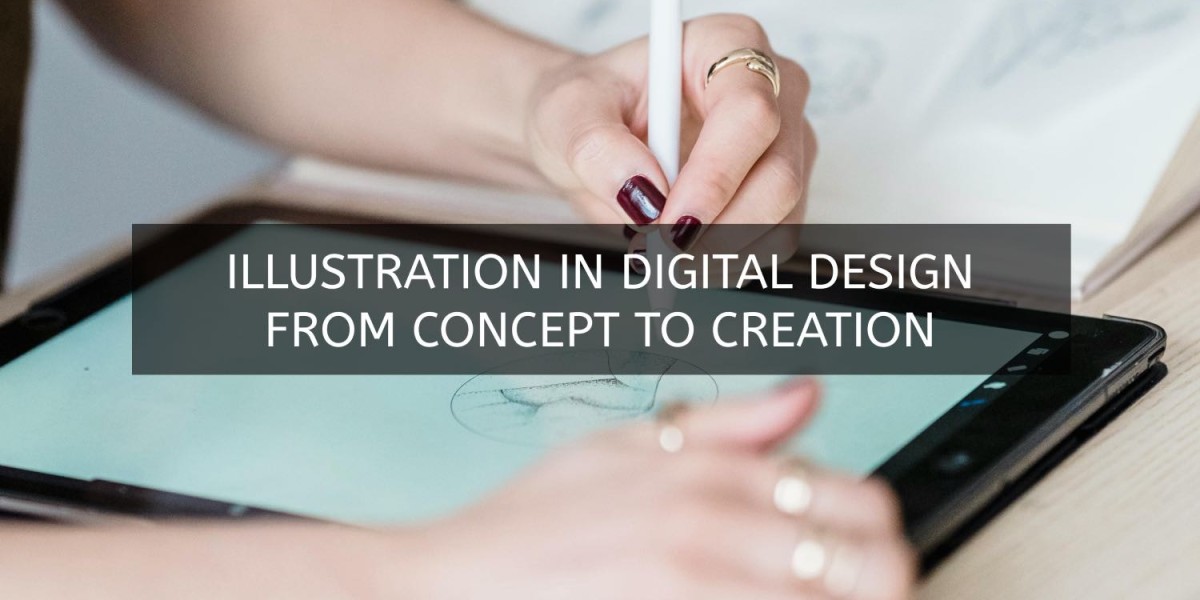In the realm of digital design, illustrations play a pivotal role in conveying messages, enhancing user experiences, and adding a distinctive visual identity to brands. From websites to mobile applications, illustrations bring creativity and storytelling to the forefront. This article explores the journey of illustration in digital design, unraveling the process from conceptualization to creation and its impact on the overall digital landscape.
- The Power of Visual Storytelling:
Illustrations are more than just aesthetically pleasing images; they are powerful storytellers. In digital design, they serve as a visual language, communicating complex ideas, emotions, and narratives in a concise and engaging manner. By combining elements like color, composition, and style, illustrators create a visual narrative that resonates with the audience, leaving a lasting impression.
- Conceptualization: Breathing Life into Ideas:
The journey of illustration begins with conceptualization—a phase where ideas take shape. Digital designers collaborate with clients or stakeholders to understand the message, emotions, and tone they want to convey. Sketching, brainstorming, and mood boards become tools for refining concepts and laying the groundwork for the visual story that will unfold.
- Choosing the Right Style:
Illustration styles vary widely, from minimalist line art to vibrant, detailed scenes. Selecting the right style is crucial in aligning the illustration with the brand or project's identity. The choice of style also depends on the target audience and the emotions the illustration aims to evoke. Whether it's a playful cartoon for a children's app or a sleek and modern graphic for a tech website, the style sets the tone for the entire design.
- Digital Tools and Techniques:
Once the concept and style are established, digital designers bring illustrations to life using a myriad of tools and techniques. Digital illustration software like Adobe Illustrator or Procreate allows for precise control over every stroke, color, and detail. Techniques such as layering, shading, and texturing add depth and dimension, transforming a two-dimensional canvas into a visually captivating illustration.
- The Role of Color Palette:
Colors evoke emotions and set the mood. In digital illustration, the choice of a color palette is a strategic decision. Designers consider the brand's color scheme, cultural associations, and the intended emotional response. A well- chosen color palette enhances the overall impact of the illustration, making it visually appealing and cohesive with the rest of the design.
- Illustrations in User Interface (UI) Design:
In the realm of user interface design, illustrations serve a dual purpose—they enhance aesthetics and improve usability. Thoughtfully placed illustrations can guide users through the interface, highlight key features, or provide a sense of progress. Icons, another form of illustration, communicate functionality in a universally understandable visual language, contributing to an intuitive user experience.
- Responsive Illustrations for Different Platforms:
With the prevalence of diverse digital platforms, from desktop to mobile to wearable devices, illustrations must be adaptable and responsive. Designers ensure that illustrations maintain their impact and clarity across various screen sizes and resolutions. Scalable vector graphics (SVG) and responsive design principles enable illustrations to seamlessly adjust to different devices without compromising quality.
- Collaboration and Feedback:
The iterative nature of digital design emphasizes collaboration and feedback. Designers often share drafts with clients or team members, gathering insights and making refinements based on feedback. This collaborative process ensures that the final illustration aligns with the project's objectives and meets the expectations of stakeholders.
Illustration in digital design is a dynamic and multifaceted process that transforms concepts into compelling visual narratives. From the initial spark of an idea to the careful selection of styles and colors, each step in the journey contributes to the creation of illustrations that captivate audiences and elevate digital experiences. As technology continues to advance, the role of illustration in digital design will evolve, pushing the boundaries of creativity and storytelling in the digital realm. Embracing the art of illustration is not just about adding visual appeal; it's about crafting a visual language that speaks to the heart of the audience, leaving a lasting and meaningful impression in the ever- expanding digital landscape.
If you want to get an individual illustration for you or your business you should know that there are many people who can create good Illustration on the market, from freelancers to large studios. We recommend you to take a look at this 3d design agency from NYC. They make awesome 3D illustrations for any purposes, including print design, 3d animation and game development. So, be sure, they will make their job highly professionally.








